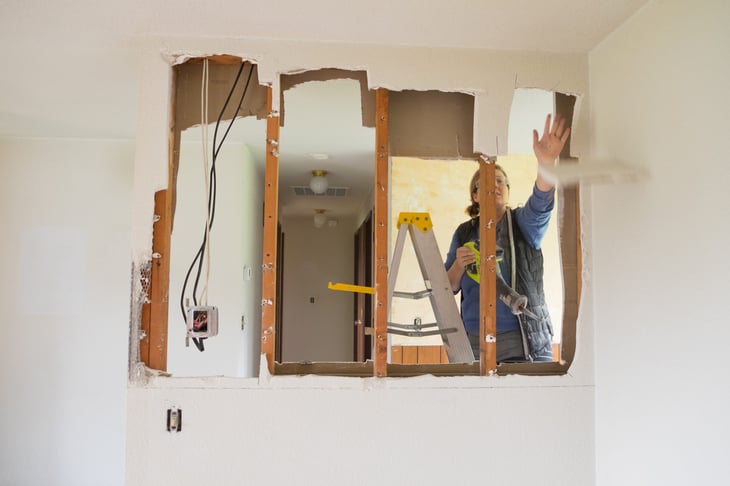
If the Mighty Algorithm knows you’re interested in personal finance, you probably get a steady stream of money-saving tips every day. From groceries to car repairs, clever folks are constantly coming up with new ways for you to save cash.
Until it comes to home improvement.
If you are not a tireless DIYer, hiring a home improvement contractor is unavoidable. And worse, there are very few resources available to help consumers save. Let’s change that. Here are some ways to save when it’s time to DNDIY (Definitely Not Do It Yourself).
1. Bundle projects

Have several small projects on your to-do list? Bundle them together. It’s easier for contractors to schedule by the day (or a few days) and helps them minimize unpaid travel time.
This strategy is particularly valuable for those living outside a major metropolitan area who need to pull in contractors from miles away.
2. Coordinate with neighbors

If you have good relationships with your neighbors, coordinate a series of projects in the same area. Contractors can move from house to house, streamline workflow and reduce set-up time.
One of word of caution here: This approach works best for non-urgent home improvement issues. Set expectations beforehand and make sure that everyone:
- Agrees on the selected contractor
- Secures individual project estimates and payment terms
- Is happy with the schedule
- Understands that cost and timing may change if new issues are discovered
3. Be flexible on timing

Urgency is expensive. Tackling projects before they become an emergency means that you can conform to the contractor’s schedule (instead of the other way around).
And if you live in an area with distinct seasons, plan your interior projects for the winter. Most contractors have fewer projects scheduled during cold months — that means less competition from other customers.
4. Negotiate

When it comes to personal economics, I live by one simple truth: Everything is negotiable. If you’ve found a contractor who does good work and comes highly recommended, negotiate the bid price.
Not sure how to start? Follow these no-fail tips for negotiating with your contractor from home services company Angi.
5. Demo and prep beforehand

According an article by Forbes, doing some light demo work yourself is a relatively simple way to save on labor costs. I couldn’t agree more.
In 2023, I asked a floor restoration company to provide an itemized estimate for sanding and refinishing my home’s original hardwood floors. By removing the carpet, padding and carpet tacks myself, I could save $150. Sure, it wasn’t a fortune, but it covered half the cost of a stunning new light fixture.
See also: “5 Home Repairs You Should Not Attempt Yourself”
6. Buy the materials yourself

According to the 2023 State of the Residential Construction Industry report, more than 30% of builders mark up projects by 25% or more — including costs of materials.
Assuming the same average holds true for home improvement professionals, you may be better off buying at least some supplies yourself. It saves the materials mark-up and reduces time costs.
7. Offer to pay cash

Sure, credit cards, Venmo, Apple Pay and PayPal are convenient, but there’s no transaction fee when you use cash.
Some contractors will gladly offer a modest discount to customers willing to pay cash when the job is done. Just remember: Be sure to get an invoice and receipt for your records.





Add a Comment
Our Policy: We welcome relevant and respectful comments in order to foster healthy and informative discussions. All other comments may be removed. Comments with links are automatically held for moderation.